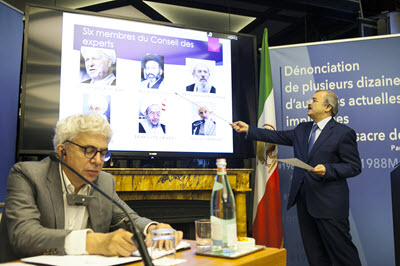Whistleblowing is—by its very nature—a risky and sometimes hazardous activity to engage in, but it also is vital if any society is to be expected to be free and democratic. The U.S. has struggled with whistleblowers going back to the Pentagon Papers case with Daniel Ellsberg exposing the Vietnam War to the modern era with Edward Snowden and Julian Assange of WikiLeaks.
On the one hand we applaud people like them for exposing corruption or threats to democracy, but on the other hand we worry about national security or exposure of agents who might be caught and killed.
The strength of any free and open society though has been that exposing wrong doing, even if done for a worthy cause, eventually makes that society stronger. An informed public can hold its leaders accountable and for better or worse, the decisions they make are ones the public is responsible for eventually.
In dictatorial regimes though, whistleblowing is regarded with anathema, akin to treason and often prosecuted with the vigor of hunting down spies and traitors. In the case of the Iranian regime speaking out about any transgressions by the regime often gets you killed.
One case of Iranian whistleblowing involved Dr. Ramin Pourandarjani, who was an Iranian physician that examined prisoners who had been wounded or killed during the mass demonstrations against the stolen 2009 election.
He had worked at the Kahrizak detention center and was responsible for the medical care of several prisoners believed to have been tortured by regime officials. One of his patients was Mohsen Ruholamini, a government scientist’s son, arrested following his participation in the post-election protests.
Ruholamini, who was 25 years old, died in prison in July 2009. The death certificate originally identified Ruholamini’s cause of death as multiple blows to the head. A report given to judicial authorities stated that Ruholamini had died of “physical stress, the effects of being held in bad conditions, multiple blows and severe injuries to the body.”
Pourandarjani publicly testified about conditions at the center and following his testimony he was arrested by regime police. During his own imprisonment, Pourandarjani was repeatedly interrogated by an escalating range of regime agencies, after which he was released on bail, but was told to remain silent and received a stream of death threats.
He died under mysterious circumstances at the age of 26. Tehran’s public prosecutor’s office said he died of poisoning from a delivery salad laced with an overdose of blood pressure medication, but regime officials claimed at various points that Pourandarjani had been injured in a car accident, committed suicide, or died of a heart attack in his sleep at the health center at the police headquarters in Tehran where he worked.
That tradition of abusing whistleblowers was giving new life when the son of an Iranian cleric once in line to be supreme leader has reportedly been charged with acting against national security interests by releasing material from his late father that denounces senior Iranian figures for the mass killings of 30,000 dissidents almost 30 years ago.
After interrogation at a religious court in Qom, Ahmad Montazeri was released on bail of almost $23,000, and told to reappear on Wednesday, according to a report by the Iranian opposition group, National Council of Resistance of Iran/People’s Mujahedeen Organization of Iran, which claimed the vast majority of those massacred were affiliated with their groups.
Last month, Montazeri released an audio recording of a 1988 meeting between his father, Grand Ayatollah Hossein Ali Montazeri, and members of a so-called “death panel” charged with carrying out supreme leader Ayatollah Ruhollah Khomeini’s mass execution decree.
One of those on the “death panel” – and at the meeting featured on the audio file – was Mostafa Pourmohammadi, an official who has served in several cabinet positions over the years and was controversially appointed Minister of Justice by “moderate” Hassan Rouhani in 2013. In 1988 he was the intelligence and security ministry’s representative at Tehran’s notorious Evin prison.
“Standing up to the violations of human rights in Iran is also the responsibility of Western governments, because its consequences do not remain within Iran. The terrorism and fundamentalism emanating from it, have been hurting defenseless people in Nice, Paris, and Brussels,” said Maryam Rajavi, the leader of the NCRI at an event in Paris which included friends and relatives of those slain.
Bernard Kouchner, former French Foreign Minister and co-founder of Doctors without Borders (MSF) said: “I ask myself what were the human rights defenders doing at that time?” He called for a “special tribunal to prosecute the mullahs for their crimes.”
“The massacres did not take place only in 1988. Iran continues to have the highest execution rate per capita. The executions have even increased after the nuclear deal,” Kouchner added.
According to Mrs. Rajavi, since Rouhani took office over 2,700 executions have taken place Iran, including the latest, a mass execution of 25 Sunnis prisoners from Iranian Kurdistan.
The fact that the Iranian regime has willfully sought to suppress any dissent and execute those who publicly denounce its actions, means the regime acts with the impunity of a serial murderer that isn’t being hunted by law enforcement. The mullahs feel they can get away with the violence they dole out because the West has failed to hold them accountable.
The revelations by the NCRI of the composition of the infamous death panel in 1988 and how many of those same members have risen to hold important positions within the current regime shows how the promises of the Iran lobby of a new “moderate” regime in the wake of the nuclear agreement were all false.
Ultimately, the U.S. and its allies must no longer ignore the truth of these massacres, nor the willing participation of the mullahs now in power in Tehran to hide the truth from the world.
By Michael Tomlinson
